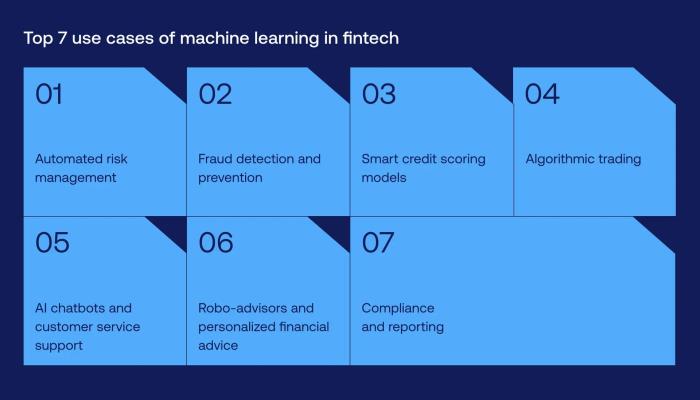Harnessing Machine Learning Algorithms for Passbook Data Analysis in Fintech: A Comprehensive Guide

In the dynamic landscape of financial technology, data analytics in fintech has emerged as a cornerstone for unlocking valuable insights and driving innovation. Passbook data, comprising transactional records and user interactions, holds immense potential for enhancing customer experiences, optimizing business operations, and mitigating risks. Leveraging advanced machine learning (ML) algorithms enables fintech companies to extract actionable intelligence from passbook data, facilitating informed decision-making and strategic planning. This article delves into the application of ML algorithms for passbook data analysis in fintech, exploring methodologies, benefits, and real-world use cases.
Understanding Passbook Data in Fintech
Passbook data encompasses a vast array of information generated through financial transactions, including deposits, withdrawals, transfers, and account balances. In the context of fintech, passbooks may manifest in digital formats, such as mobile banking apps or online platforms, providing users with real-time access to their financial activities. These data streams offer valuable insights into user behaviors, spending patterns, and preferences, forming the foundation for data-driven decision-making in fintech enterprises.
Role of Machine Learning in Passbook Data Analysis
Machine learning algorithms play a pivotal role in transforming raw passbook data into actionable intelligence, enabling fintech companies to derive meaningful insights and drive business outcomes. By leveraging ML techniques, organizations can perform various tasks, including data classification, anomaly detection, predictive modeling, and customer segmentation, among others. The iterative nature of ML algorithms allows for continuous learning and adaptation to evolving patterns and trends within passbook data, enhancing the accuracy and efficacy of analytical processes.
Key Machine Learning Algorithms for Passbook Data Analysis
- Classification Algorithms:
– Decision Trees: Decision trees are versatile algorithms used for classifying passbook data into predefined categories based on features such as transaction type, amount, and timestamp.
– Random Forest: Random forest algorithms aggregate multiple decision trees to improve classification accuracy and handle complex passbook datasets effectively.
- Anomaly Detection Algorithms:
– Isolation Forest: Isolation forest algorithms identify outliers or anomalies within passbook data by isolating them in feature space, making them particularly useful for fraud detection and risk management.
– One-Class SVM: One-Class Support Vector Machine (SVM) algorithms detect anomalies by learning the underlying structure of normal passbook data and flagging instances that deviate significantly from the established patterns.
- Predictive Modeling Algorithms:
– Linear Regression: Linear regression models predict future trends or outcomes in passbook data by establishing linear relationships between input features and target variables, such as account balances or transaction volumes.
– Recurrent Neural Networks (RNNs): RNNs are specialized deep learning algorithms capable of capturing temporal dependencies and sequential patterns in passbook data, making them ideal for time series forecasting and predictive analytics.
Benefits of Utilizing Machine Learning in Passbook Data Analysis
The integration of machine learning algorithms into passbook data analysis offers numerous benefits for fintech organizations, including:
– Enhanced Fraud Detection: ML algorithms can identify fraudulent activities or suspicious transactions in real-time, minimizing financial losses and protecting users from security breaches.
– Personalized Recommendations: By analyzing user behaviors and preferences, ML algorithms can generate personalized recommendations for financial products, services, or investment opportunities, driving customer engagement and satisfaction.
– Operational Efficiency: Automation of routine tasks, such as data processing, pattern recognition, and decision-making, streamlines operational workflows and reduces manual intervention, enabling fintech companies to scale their operations effectively.
– Risk Management: ML algorithms enable proactive risk management strategies by identifying potential risks or market fluctuations based on historical passbook data and market trends, empowering organizations to make informed decisions and mitigate financial risks.
Real-World Use Cases of Machine Learning in Passbook Data Analysis
Several fintech companies have successfully implemented ML algorithms for passbook data analysis, yielding tangible benefits across various domains:
- Fraud Detection and Prevention: Companies like PayPal and Square leverage ML algorithms to detect fraudulent transactions and suspicious activities in real-time, enhancing security and safeguarding user accounts.
- Credit Risk Assessment: Fintech lenders, such as LendingClub and Prosper, utilize ML models to assess creditworthiness and determine loan eligibility based on passbook data and alternative credit metrics.
- Personalized Financial Services: Digital banks and robo-advisors, including Chime and Wealthfront, employ ML algorithms to deliver personalized financial recommendations and automated investment strategies tailored to individual user preferences and financial goals.
Conclusion
Machine learning algorithms offer unprecedented opportunities for unlocking insights from passbook data in fintech, enabling organizations to drive innovation, enhance customer experiences, and optimize business operations. By leveraging classification, anomaly detection, predictive modeling, and other ML techniques, fintech companies can extract actionable intelligence from passbook data, leading to improved fraud detection, personalized financial services, and enhanced risk management capabilities. As the fintech landscape continues to evolve, the integration of ML algorithms into passbook data analytics will remain pivotal in shaping the future of financial innovation and digital transformation.



